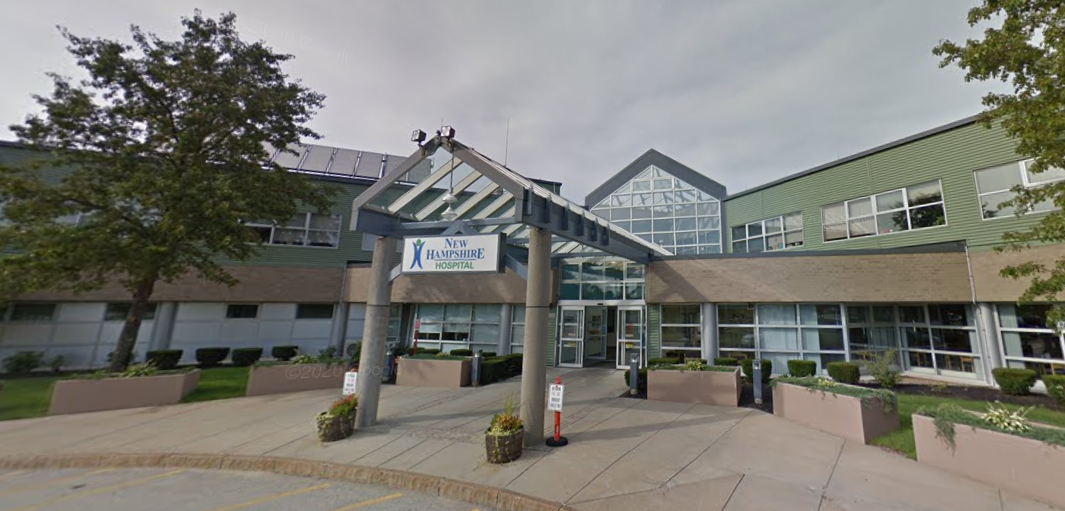Manchester VAMC

Contact Details
-
Name:Manchester VAMC
-
Address:630 West Main Street
Tilton, NH - 03276 -
Phone:603-624-4366 x3199
-
Email:
-
Website:
Description
There are currently state and federally funded or sponsored drug and alcohol treatment centers in the state of New Hampshire
Questions & Answers
Help others like you find out more about Manchester VAMC. Do you know the answers to any of these questions? Contribute now and help others like you.
What kinds of care do they offer?
-
Mental health treatment
Includes interventions such as therapy or psychotropic medication that treat a person's mental health problem or condition, reduce symptoms, and improve behavioral functioning and outcomes.
-
Substance use treatment
Refers to a broad range of activities or services, including identification of the problem (and engaging the individual in treatment); brief interventions; assessment of substance abuse and related problems including histories of various types of abuse; diagnosis of the problem(s); and treatment planning, including counseling, medical services, psychiatric services, psychological services, social services and follow-up for persons with alcohol or other drug problems (Institute of Medicine, 1990).
-
Treatment for co-occurring substance use plus either serious mental health illness in adults/serious emotional disturbance in children
Housing for individuals recovering from substance abuse that is designed to provide a drug and alcohol-free living environment and appropriate support services to facilitate movement to independent living. Such housing includes transitional living, sober houses, sober living, recovery houses, and 3/4 houses.
What types of treatment approaches do they offer?
-
Individual psychotherapy
Focuses on a patient's current life and relationships within the family, social, and work environments through one-on-one conversations with a therapist. The goal is to identify and resolve problems with insight, as well as build on strengths.
-
Group therapy
Involves groups of usually 4 to 12 people who have similar problems and who meet regularly with a therapist. The therapist uses the emotional interactions of the group's members to (1) help them get relief from distress and (2) possibly modify their behavior.
-
Cognitive behavioral therapy
Involves recognizing unhelpful patterns of thinking and reacting, and then modifying or replacing these with more realistic or helpful ones. The therapy can be conducted with individuals, families, or groups, and clients are generally expected to be active participants in their own therapy.
-
Dialectical behavior therapy
A cognitive behavioral treatment approach with two key characteristics: a behavioral, problem-solving focus blended with acceptance-based strategies, and an emphasis on dialectical processes. "Dialectical" refers to the issues involved in treating patients with multiple disorders and to the type of thought processes and behavioral styles used in the treatment strategies. DBT has five components: (1) capability enhancement (skills training); (2) motivational enhancement (individual behavioral treatment plans); (3) generalization (access to therapist outside clinical setting, homework, and inclusion of family in treatment); (4) structuring of the environment (programmatic emphasis on reinforcement of adaptive behaviors); and (5) capability and motivational enhancement of therapists (therapist team consultation group). DBT emphasizes balancing behavioral change, problem-solving, and emotional regulation with validation, mindfulness, and acceptance.
-
Integrated Mental and Substance Use Disorder treatment
Provides combined treatment for mental illness and substance abuse from the same clinician or treatment team. Effective integrated treatment programs view recovery as a long-term, community-based process. The approach employs counseling designed especially for those with co-occurring disorders.
-
Activity therapy
Includes art, dance, music, recreational and occupational therapies, and psychodrama.
-
Telemedicine/telehealth therapy
The ability for healthcare providers, working from a distance using telecommunications technology, to communicate with patients, diagnose conditions, provide treatment, and discuss healthcare issues with other providers to ensure quality healthcare services are provided. Other names used for this treatment approach are: e-medicine, e-therapy, e-psychiatry, and telepsychiatry.
-
Abnormal involuntary movement scale
The Abnormal Involuntary Movement Scale (AIMS) is a rating scale that was designed in the 1970s to measure involuntary movements known as tardive dyskinesia (TD).
-
Smoking not permitted
Smoking is not allowed.
What type of setting is this location?
-
Outpatient
Describes patients who receive treatment services without an overnight stay at a treatment facility or hospital.
Who is responsible for the operation of this facility?
-
U.S. Department of Veterans Affairs
Facility operated by the U.S. Department of Veterans Affairs, including general hospitals, and/or residential treatment programs, and/or?psychiatric out?patient clinics.
-
Federal Government
What types of payment or funding do they accept?
-
Medicare
The federal health insurance program for people age 65 and older and people with disabilities.
-
Private health insurance
-
Federal military insurance (e.g., TRICARE)
-
U.S. Department of VA funds
What language services are offered?
-
Sign language services for the deaf and hard of hearing
Service provided for persons who are deaf and hard of hearing.
What specific groups are treated here?
-
Clients with co-occurring mental and substance use disorders
Facility has a program or group specifically tailored for persons with co-occurring mental and substance abuse disorders.
-
Lesbian, gay, bisexual, transgender, or queer/questioning (LGBTQ)
Facility has a program or group specifically tailored for LGBT clients.
-
Veterans
Facility has a program or group specifically tailored for Veterans.
-
Seniors or older adults
Facility has a program or group specifically tailored for Seniors or older adults.
-
Clients with HIV or AIDS
Facility has a program or group specifically tailored for persons with HIV or AIDS.
-
Clients who have experienced trauma
Facility has a program or group specifically tailored for persons who have experienced trauma.
-
Persons 18 and older with serious mental illness (SMI)
Facility has a program or group specifically tailored for persons with serious mental illness.
-
Persons with Alzheimer's or dementia
Facility has a program or group specifically tailored for persons with Alzheimer's or dementia.
-
Persons with post-traumatic stress disorder (PTSD)
Facility has a program or group specifically tailored for persons with post-traumatic stress disorder.
-
Persons with traumatic brain injury (TBI)
Facility has a program or group specifically tailored for persons with traumatic brain injury.
-
Persons with eating disorders
Facility has a program or group specifically tailored for persons with eating disorders.
What ancillary services are offered at this facility?
-
Case management service
Helps people arrange for appropriate services and supports through a case manager who monitors the needs of clients/patients and their families and coordinates services, such as mental health, social work, health, educational, vocational, recreational, transportation, advocacy, and respite care, as needed.
-
Chronic disease/illness management
A systematic approach to improving health care for people with chronic disease. Central to most CDM approaches are patient self-management, physician education, and organizational support. Among the variety of strategies employed are case management, continuous quality improvement, disease management (DM) and the chronic care model (CCM).
-
Court-ordered outpatient treatment
Known by different terms in different states, such as, ?assisted outpatient treatment (AOT),? ?involuntary outpatient treatment,? or ?mandatory outpatient treatment.? Forty-four states permit the use of court-ordered outpatient treatment as a condition for persons with severe mental illness, who are too ill to seek care voluntarily, to remain in their community. Each state has its own civil commitment laws that establish criteria for determining when court-ordered treatment is appropriate for these individuals. (https://www.crimesolutions.gov/ProgramDetails.aspx?ID=228)
-
Education services
Locate or provide educational services from basic literacy through a general equivalency diploma and college courses including special education at the pre-primary, primary, secondary, and adult levels.
-
Family psychoeducation
Helps consumers and their families and supporters, through relationship building, education, collaboration, and problem solving to: 1) learn about mental illness; 2) master new ways of managing their mental illness; 3) reduce tension and stress within the family; 4) provide social support and encouragement to each other; 5) focus on the future; and 6) find ways for families and supporters to help consumers in their recovery.
-
Integrated primary care services
Address the general health care needs of persons with mental health and substance use problems. These general health care needs include the prevention and treatment of chronic illnesses (e.g., hypertension, diabetes, obesity, and cardiovascular disease) that can be aggravated by poor health habits such as inadequate physical activity, poor nutrition, and smoking. The services include screening, coordinating care among behavioral health care staff and medical staff; and providing linkages to ensure that all patient needs are met in order to promote wellness and produce the best outcomes.
-
Suicide prevention services
Include identifying risk factors; educating staff on identifying the signs of suicidal behavior and using methods to detect risk; and the assessment, intervention, and management of suicidal patients including treatment of an underlying mental or substance use disorder, and use of psychotropic medication, supportive services, and education. Hotlines help individuals to contact the nearest suicide prevention mental health provider.
-
Supported housing
Independent, normal housing with flexible, individualized supportive services that allow individuals to maintain as much independence as possible.
What types of recovery support services are offered here?
-
Mentoring/peer support
-
Housing services
Are designed to assist individuals with finding and maintaining appropriate housing arrangements.
What specific pharmacotherapy treatments do they provide?
-
Nicotine replacement
Administers nicotine to the body by means other than tobacco, without other harmful chemicals found in tobacco. Common forms of nicotine replacement therapy are nicotine patches, nicotine gum or lozenges, nasal spray and inhaler. The goal of nicotine replacement is to prevent cravings in a tobacco user, allowing the person to abstain from tobacco.
-
Non-nicotine smoking/tobacco cessation
Are medications that do not contain nicotine but act on the brain to reduce a person's craving for tobacco. Some common medications are Bupropion (Zyban, Wellbutrin), and Nortriptyline (Pamelor). Medications are often prescribed in conjunction with behavioral counseling or support groups to provide the best chance for achieving long-term smoking abstinence. (http://www.mayoclinic.com)
-
Antipsychotics used in treatment of SMI
A multi-disciplinary clinical team approach, helps those with serious mental illness live in the community by providing 24-hour intensive community services in the individual's natural setting.
What types of screening and assessment methods are used here?
-
Screening for tobacco use
Determines a client's use of tobacco products, such as cigarettes, cigars, pipe tobacco, or smokeless tobacco. It is generally recommended that providers screen for tobacco use on a regular basis by asking clients, as they are seen, about their current and past use of tobacco products and their exposure to secondhand smoke or tobacco.
What kinds of education and counseling services are offered here?
-
Smoking/vaping/tobacco cessation counseling
Includes interventions for persons who use tobacco and want help with stopping, including behavioral support or counseling in groups or individually.
What age groups are accepted here?
-
Young Adults
Facility accepts young adults (13-25) for treatment.
-
Adults
Facility accepts adults (26-64) for treatment.
-
Seniors
Facility accepts seniors (65 or older) for treatment.
What types of testing do they offer?
-
Metabolic syndrome monitoring
-
Laboratory testing
What type of facility is this?
-
Veterans Affairs Medical Center or other VA healthcare facility
Is vaping allowed at this facility?
-
Vaping not permitted
How do I apply for admission at this location?
Have you been to this facility? What was your experience?
Is there a wait-list for treatment center?
Is any payment required?
Related Posts
New Hampshire Department of Health and Human Services
- Concord, NH
- 17.51 miles away
New Hampshire Hospital
- Concord, NH
- 17.74 miles away


